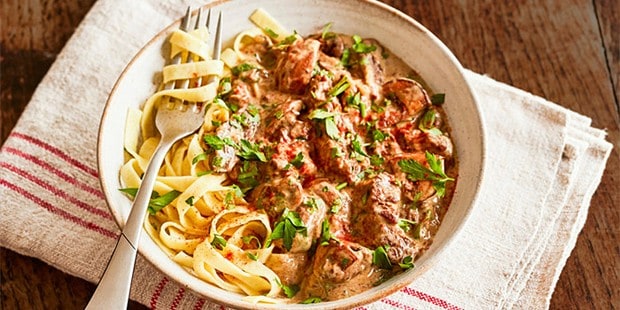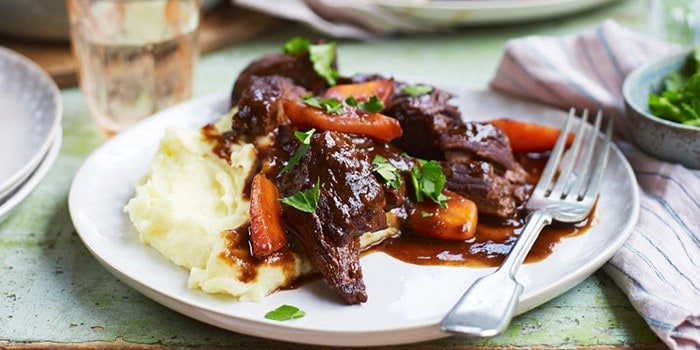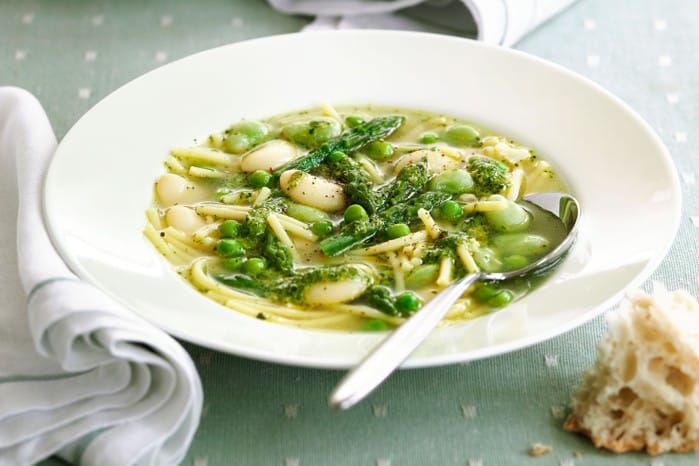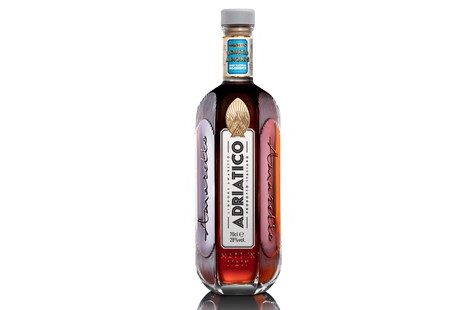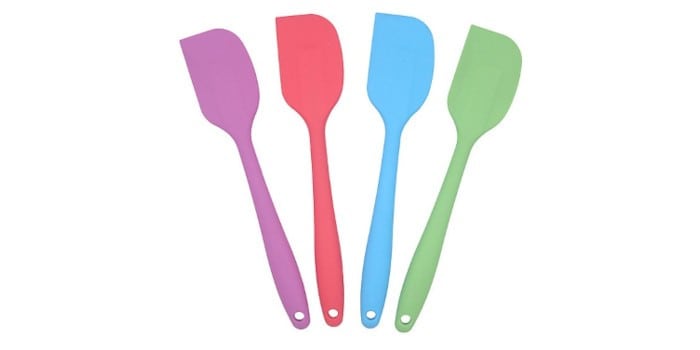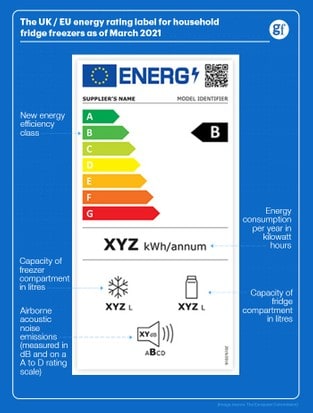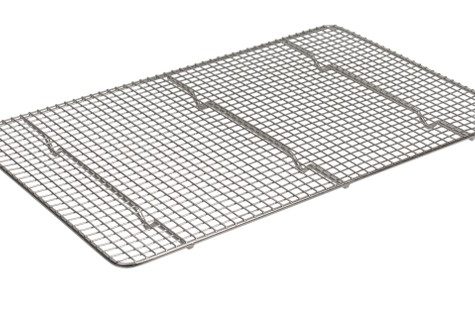This page was last updated in April 2021.
Looking to buy a slow cooker? Read our round-up of the top products to meet a range of budgets and requirements. Follow our tips for how to use a slow cooker and recipe advice.
Jump to section:
Slow cookers are plug-in electronic appliances that use a gentle heat over a long period of time (usually four hours or more) to cook liquid-based dishes. This allows you to prepare a meal in the morning and leave it unattended during the day, before returning to a ready-cooked meal later on.
The machines vary in price, you can pick one up for as little as a tenner or as much as a few hundred pounds. Different models meet different criteria and come with additional features.
Slow cooker recipes are hugely popular and can be used to cook a range of delicious stews, casseroles, soups and curries, as well as less obvious dishes such as yogurt, grains, dhal and puddings.
See our collection of the best ever slow cooker recipes, and check out our further recipe suggestions below the main review.
- Best basic slow-cooker: Daewoo 3.5-litre slow cooker, £20.99
- Best slow cooker for contemporary design: Next copper slow cooker, £30
- Best large slow cooker for low and slow cooking: Swan 6.5-litre retro slow cooker, £39.99
- Best blow-out multi-tasking slow cooker: Ninja 9-in-1 multi-cooker OP350UK, £199
- Best basic slow cooker for large quantities: VonShef 6.5-litre slow cooker, £44.99
- Best value multi-cooker: Tefal RK302E15 Multicook 8-in-1 multi-cooker, £62.05
- Best multi-tasking slow cooker: Ninja Foodi multi-cooker OP300UK, £149.99
- Best slow cooker and pressure cooker in one: Sage the Fast Slow Pro™, £149.95
- Best no-nonsense slow cooker: Tower Infinity 3.5-litre slow cooker, £17.99
- Best slow cooker for families: Lakeland Digital slow cooker 6.5-litre, £59.99
- Best kitchen-to-table slow cooker: Crock-Pot Lift & Serve digital slow cooker, £44.99
- Best basic slow cooker for students: George 3-litre stainless steel slow cooker, £13
- Best everyday slow cooker: Morphy Richards Sear, Stew and Stir slow cooker, £54.99
- Best slow cooker for innovative and practical design: Salter EK2842 chalkboard 3.5-litre slow cooker, £29.39
- Best budget slow cooker: Wilko 6-litre slow cooker, £20
There is much to love about a slow cooker. Their main advantage is the ease and convenience of arriving home to a hot meal ready to eat. There is no need to stir the contents in between, as slow cookers apply an even heat and don’t get hot enough for the food to catch.
They also allow you to get the best out of cheaper cuts of meat, as cooking on low for a long period can tenderise the meat and enhance the flavour. Slow cookers are also less energy intensive than conventional electric ovens, and therefore more economical. Finally, they often offer a healthier, low-fat way of cooking and often preserve more nutrients than other methods such as baking, boiling and frying. Check out our collection of healthy slow cooker recipes.
- No liquid escapes from a slow cooker, so when adapting a recipe not specifically written for a slow cooker, reduce any added liquid by a third.
- Don’t remove the lid too often to avoid heat loss.
- The inner pot needs to be at room temperature before you start cooking. If you’ve kept a slow cooker dish in the fridge, you must wait for it to warm up before turning it on.
- Slow cookers vary considerably, so follow your manufacturer’s manual for guidelines on temperatures and cooking times.
- Rice and pasta dishes work best cooked on high for the shortest time possible. Always use easy-cook rice, rinsed well first – the more starch you rinse from the rice, the better the finished result.
- Take time to brown your meat really well. Slow cookers tend to leach meat of its colour, so it’s important for appearance and flavour that they are well browned to start with. Flavours won’t become more concentrated because the liquid doesn’t reduce, so try to pack in as much flavour as you can.
For more, read our top 10 tips for using a slow cooker.
With so many variations of slow cookers out there, choosing can be confusing. Here are a few questions you might want to consider.
How many are you cooking for?
With sizes starting at 1-litre through to a whopping 6.5-litres, choosing the right size for you is imperative. The smallest sizes are suitable when cooking for one or two or those with small appetites. 3-litres to 4.5-litres (one of the most popular sizes on the market) serve four, and the large 6 – 6.5-litre models are super for families and batch cooking. It’s also worth bearing in mind that the capacity stated on the sales blurb is the size of the bowl, not the working capacity, which can sometimes be half that.
How much space do you have?
A slow cooker takes up space on the worktop and in the cupboard. There are two shapes, the round and tall, which has less of a footprint, and the oval, which takes up more room but can be more versatile.
What is your price range?
If it is a straightforward, no-frills slow cooker you’re after, then you can pick these up from £10. Choose digital models with additional features or multi-cookers with multiple cooking functions and the price jumps. These can also be cost-effective if you use all the extras.

So, which is the best slow cooker for you? We extensively tested a wide range of models to find our top 10 slow cookers.
For more unbiased expert buyer’s guides, visit our review section to find 200+ round-ups of everything from the best food processors and best microwaves to the best dishwashers and best coffee machines.
Ninja Foodi 9-in-1 multicooker OP350UK
Best blow-out multitasking slow cooker

Pros:
- nine functions in one countertop cooker
- accompanying recipe book
- clear instructions
Cons:
- requires an additional slow cooker lid
- large footprint for storage
This is a newer, more sophisticated step-up from Ninja Foodi’s 6-in-1 multicooker, packing in nine functions for performing key kitchen tasks, plus a couple for fun. We’re talking slow cooking (which is very user-friendly) searing/sautéing, air-crisping, grilling, dehydrating, baking/roasting, yogurt making, pressur cooking and steaming. It has a modern-feel with intuitive controls and an outer casing that only gets warm to the touch, rather than excessively hot. It’s the ultimate kitchen gadget. Read our full Ninja Foodi 9-in-1 6-litre multicooker review.
Daewoo 3.5-litre slow cooker
Best basic slow cooker

Pros:
- two-year warranty
- dishwasher-safe pot and lid
- three heat settings
Cons:
- warm outer
- ‘keep warm’ setting isn’t the most powerful
Despite the price and its relatively cheap steel outer, the Daewoo is a front-runner in its ability to cook gently, creating deliciously tender meat chunks for beef stew and softened vegetables overnight without singeing around the inside. This is a 210W slow cooker with the capacity to feed a family of four, or two with leftovers the next day. Read our full Daewoo 3.5-litre slow cooker review.
Next copper-effect slow cooker
Best slow cooker for contemporary design

Pros:
- silicone cool-touch handle and lid handle
- contemporary copper-effect design
Cons:
- poor-fitting ceramic bowl in outer base
- no medium heat setting
- can’t use on the hob
It’s nice to find a slow cooker that’s actually individual in design, without seeing a major jump in price. Drawbacks of this model come in the form of a loose-fitting pot inside the base and an ill-fitting lid. We anticipated this would result in drier stews with the lid not offering much weight for a seal, but it thankfully doesn’t affect the cooking at all. In our tests, the resulting meals were rich while balanced in flavour and had lovely consistencies. Read our full Next copper slow cooker review.
Swan 6.5-litre retro slow cooker
Best large slow cooker for low and slow cooking

Pros:
- stylised 1950s design
- large size
- effective cooking
Cons:
- impractical cream-coloured dish
- cheap-feel lid handle
If you want to slow cook a whole extra-large chicken overnight to feed a family of six or batch cook a stew for storing in the freezer, this gadget is a great choice. It’s incredibly gentle but effective in its cooking, producing meat that simply falls apart with zero burning after a full eight-hour test. The light colour of its dish is a bit impractical and may stain over time. The 1950s design also won’t be to everyone’s taste, but those that like it have a choice of over 10 colours. Read our full Swan 6.5-litre retro slow cooker review.
Tefal RK302E15 Multicook 8-in-1 multi-cooker
Best value multi-cooker

Pros:
- pop-up vented lid
- fingerprint-free stainless steel exterior
Cons:
- only displays minutes left to cook in the last hour
The multiple functions, safety features and reasonable price of the Tefal 8-in-1 multi-cooker make this a highly desirable piece of kit. The recipes we tested were impressive. The beef stew was beautifully thick, thanks to the vent in the lid releasing vapour, and the gravy was glossy and dark. At the end of cooking, the meat stayed in large, meltingly tender chunks. Read our full Tefal 8-in-1 multi-cooker review.
Ninja Foodi multi-cooker OP300UK
Best multi-tasking slow cooker

Pros:
- multi-gadgets all-in-one at a good price
Cons:
- bulky
- requires two heavy lids
This well-built multi-cooker has many functions. These include slow and pressure cooking, air frying, roasting and grilling. The sear function means you can prepare meat and veg without having to use pans on the hob. Its size makes it perfect for families and batch cooking. The tested recipes were excellent, with thick sauces and fresh flavours. Read our full Ninja Foodi multi-cooker review.
Sage the Fast Slow Pro™
Best slow cooker and pressure cooker in one

Pros:
- stylish appearance
- impressive functions
Cons:
The Fast Slow may be expensive and have fewer functions than some multi-cookers, but it’s worth the investment for its great looks, searing, sautéing and reducing functions. It has a relatively small footprint for a multi-cooker and the build is solid – all features feel robust and well-built, from the strong handles to the hinged lid. Read our full Sage Fast Slow Pro review.
Tower Infinity 3.5-litre slow cooker
Best no-nonsense slow cooker

Pros:
Cons:
- long flex cord
- can’t sear ingredients
This slow cooker has simple, straightforward functionality and looks good enough to leave it sitting on the worktop. It may not come with the fancy flourishes and added settings of more expensive models, but its strength lies in its cooking performance and value for money. Read our full Tower Infinity slow cooker review.
Available from Amazon (£29.99)
Lakeland Digital slow cooker 6.5-litre
Best slow cooker for families

Pros:
- able to sear ingredients in the pot, including on induction
- option to delay start time
Cons:
- inner pot
- slightly domed base a little awkward
This is a seriously good choice if you want a larger machine for family meals or batch cooking. Being able to sear ingredients in the pot on the hob, including on induction, and the delayed start option are two functions worth having, with the added bonus that it cooks food superbly. Read our full Lakeland Digital slow cooker review.
Crock-Pot Lift & Serve digital slow cooker
Best kitchen-to-table slow cooker

Pros:
- ability to lift and serve direct to table
- value for money
Cons:
This slow cooker represents superb value for money given the quality, with an impressive digital screen and smart hinged lid for clean, drip-free work surfaces. Its stylish good looks mean dinner can be served straight to the table from the pot. Read our full Crock-Pot Lift and Serve digital slow cooker review.
George 3-litre stainless steel slow cooker
Best basic slow cooker

Pros:
- great value for money
- easy to use
Cons:
- flimsy construction
- small capacity
If budget is a consideration and you don’t need a lot of capacity, this slow cooker is a straightforward, uncomplicated option. The build isn’t as robust as the others tested, but the cooking results were good and it’s a great beginner model, ideal for student kitchens. Read our full George stainless steel slow cooker review.
Available from George at Asda (£13)
Morphy Richards Sear, Stew and Stir slow cooker
Best everyday slow cooker

Pros:
- handy stirring function
- ability to sear in the pot
Cons:
This is a well-made, reliable appliance. It’s bulky, but offers an automated stirring function and the ability to sear in the pot. It’s worth noting that the stirring function isn’t suitable for every recipe, for instance those using large joints of meat. Read our full Morphy Richards Sear, Stew and Stir slow cooker review.
Salter EK2842 chalkboard 3.5-litre slow cooker
Best slow cooker for innovative and practical design

Pros:
- surprisingly useful chalkboard finish
- small kitchen footprint
Cons:
With its great cooking results and reasonable price, this is an excellent option, especially for those with limited kitchen space. The quirky, chalkboard finish is a surprisingly useful feature for noting cooking times, as the machine doesn’t have a timer. The stay-cool handles live up to their name, allowing you to easily lift out the inner pan. Read our full Salter chalkboard slow cooker review.
Wilko 6-litre slow cooker
Best budget slow cooker

Pros:
- bargain price
- family-sized
Cons:
- high setting is fiercely hot
This generously-sized cooker easily makes enough food for six people. The high setting is a little too fierce for some recipes but a few adjustments and you have excellent bargain buy. We recommend using the low setting for the best results. We were particularly pleased with the results of the chicken curry test – the sauce was glossy and the flavour excellent. Read our full Wilko slow cooker review.
Available from Wilko (£20)

We tested a range of slow cookers, including multi-cookers, with two favourite BBC Good Food slow cooker recipes. The first, a slow cooker beef stew, was cooked on the high setting for 4 hours. As the meat requires searing before cooking, where this was an available setting on the cooker, we did this too.
The second, an easy slow cooker chicken curry, requires marinating overnight, making it perfect for switching on in the morning and leaving for 6 hours of cooking. The chicken isn’t seared first, making it a fuss-free recipe to prepare.
We scored the slow cookers against the following criteria:
Capacity and size: the bowl capacity and the footprint for using and storing in the kitchen
Heat retention: how the cooker holds heat for safety on the worktop and whether the food catches or burns
Ease of use: how easy it is to assemble and use
Functions: additional functions on the cooker including browning, reheating, reducing and whether it is hob or oven-safe
Versatility: does the cooker make a range of dishes?
Quality of material: the material and the construction of the machines
Design features: the type of lid, handles, automatic warming, countdown and indicator lights
Finished results: the tenderness of the meat and vegetables, the consistency of the cooked sauce and the heat of the food when serving
Manual: how helpful was the instruction book and did it include recipes?
Packaging: excessive use of plastic in packaging was scored negatively

Slow cooker beef stew
Slow cooker chicken curry
Slow cooker bolognese
Slow cooker sausage casserole
Slow cooker ratatouille
Slow cooker lasagne
Slow cooker gammon
Healthy slow cooker recipes
Slow cooker chicken recipes
Summer slow cooker recipes
Slow cooker curry recipes
Slow cooker beef recipes
Our best ever slow cooker recipes
Both slow cookers and pressure cookers offer a convenient and versatile way to cook, as the machine takes on some of the work. They can both be effective at braising and stewing, however there are some key differences between the two gadgets.
Slow cookers are plug-in electronic appliances that use a gentle heat over a long period of time (usually four hours or more) to cook liquid-based dishes.
Pressure cookers can be hob-top or electronic and operate at high temperatures, employing pressure to quickly work through ingredients that traditionally require slow cooking, such as hard pulses and tough meat cuts. Similar to slow cooking, pressure cooking is a wet cooking technique and liquid should always be used.
As for one versus the other, there are pros and cons to both. Slow cookers can result in watery sauces, while pressure cookers can be intimidating to use. With practice and the right recipes, they can be very useful for busy households. Investing in a multi-cooker is a good way to get the best of both worlds.
Read more about pressure cookers and how to use them.

Gravy granules will add colour to stews, as food cooked in a slow cooker is usually pale. Marmite will do the same job. Season at the same time.
Use arrowroot or cornflour to thicken sauces by removing a spoonful of sauce from the pot and whisking in 1-2 tbsp of flour before adding it back in.
A dash of cream or crème fraîche at the last minute will enrich sauces and soups.
This review was last updated in April 2021. If you have any questions, suggestions for future reviews or spot anything that has changed in price or availability, please get in touch at goodfoodwebsite@immediate.co.uk.
Do you swear by your slow cooker? Leave your recipe ideas below…

